
Materials Day 2022 | Simulation and Modeling of Extended Materials: Connecting Scales for Practical Applications
Friday, October 14, 2022
8:30am – 4:30pm
100% Virtual
Event Host: Professor Sahar Sharifzadeh
About This Event
Computational modeling has become increasingly important for predicting physically-relevant properties of materials, enabling materials design rules for synthesis and experiment. With the increase in computational power and availability of new accurate methods, more complex materials systems can be addressed. This workshop will focus on predictive simulations that are large-scale in scope or relate directly to device modeling. The program will feature talks from prominent scholars in the field of computational materials science studying thermal, mechanical, and electronic properties of materials.
Agenda & Recordings
20 minute presentations, plus 7 minutes for questions
8:30 Welcome
Dean Kenneth Lutchen
Event Host: Sahar Sharifzadeh
Session I
8:40 Nicola Marzari: Novel Vistas in Thermal Transport: Relaxons, Viscosities, and Coherences
9:10 Elif Ertekin: Computation-Guided Design And Discovery Of Thermoelectric Materials: How Well We Can Do And What Is Missing
9:40 Heather J. Kulik: Discovering Transition Metal Catalysts and Materials with Machine Learning
10:10 Kristian Sommer Thygesen: Mapping Out 2D Materials Space
10:40 Break
Session II
11:00 Vikram Gavini: Fast, Accurate and Large-scale Ab-initio Calculations for Materials Modeling
11:30 James Chapman: From Atoms to Microns: Understanding How Materials Behave, One Atom at a Time
12:00 Tess Smidt: Neural Networks with Euclidean Symmetry for Atomic Systems
12:30 Break
12:40 Poster Session
1:50 Break
Session III
2:00 Giulia Galli: Electronic Structure and Coherence Properties of Spin Defects in Semiconductors From First Principles (we regret that no recording is available)
2:30 Ismaila Dabo: Data-Intensive Discovery of Photocatalytic Semiconductors for Solar-to-Hydrogen Conversion
3:00 Tod Pascal: Simulated, Non-Linear X-ray Spectroscopy as a Probe of Buried Functional Materials Interfaces
3:30 Enrico Bellotti: Center for Semiconductor Modeling (CSM) – Accelerating Technology Development through Understanding Fundamental and Technology Limitations in Materials and Devices
4:00 Conclusion
Event Host: Professor Sahar Sharifzadeh
Session I: Nicola Marzari, Swiss Federal Institute of Technology Lausanne (EPFL)
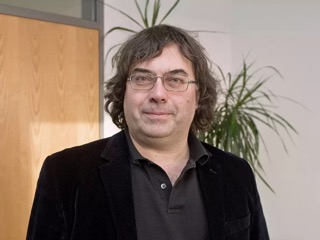
Lecture Title: Novel Vistas in Thermal Transport: Relaxons, Viscosities, and Coherences
Lecture Abstract: First, we examine the emergence of correlated transport phenomena in systems described by the linearized Boltzmann transport equation (LBTE), with examples centered around heat transport. We show how phonons are only a high-temperature approximation to the exact carriers, that we term relaxons, and that the thermal conductivity can be mapped exactly into a kinetic theory of the relaxon gas. We also calculate the viscosity of this gas, and coarse-grain the LBTE into coupled viscous equations that describe the hydrodynamic regime of heat propagation. Last, we discuss the inclusion of phonon tunnelling through a Wigner transport formulation.
Speaker Bio: Nicola Marzari holds the chair of Theory and Simulation of Materials at
EPFL, where he is also the director of the MARVEL National Center for Computational Design and Discovery of Novel Materials. He directs also the Laboratory for Materials Simulations at the Paul Scherrer Insitut. He has a Laurea degree in Physics from the University of Trieste, and a PhD in Physics from the University of Cambridge. Previous tenured appointments include the Toyota Chair of Materials Processing at MIT, and the Statutory Chair of Materials Modeling at the University of Oxford.
Session I: Elif Ertekin, University of Illinois Urbana-Champaign
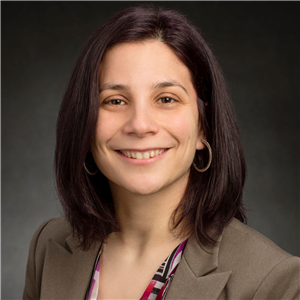
- Lecture Title: Computation-Guided Design And Discovery Of Thermoelectric Materials: How Well We Can Do And What Is Missing
- Lecture Abstract: My presentation will highlight our recent attempts to make the computation-experiment handshake applied to the design and discovery of thermoelectric materials. Focusing on the space of ordered vacancy compounds, we will highlight where first-principles modeling and simulation has been succesful for identifying new materials in a computation-guided search, phase boundary mapping and other ways in which computational predictions and experimental measurements can be directly compared, and some of the challenges that arise in terms of simulation accuracy attainable.
- Speaker Bio: Elif Ertekin is Associate Professor, Andersen Faculty Scholar, and Director of Mechanics Programs at the Mechanical Science and Engineering Department at the University of Illinois at Urbana-Champaign. She focuses on developing a microscopic understanding of atomic and electronic scale processes, with applications areas in thermal transport, energy conversion, and defect chemistry. She received her PhD in Materials Science and Engineering from UC Berkeley, and carried out post-doctoral work at the Berkeley Nanoscience and Nanoengineering Institute and the Massachusetts Institute of Technology. She has received the NSF CAREER Award, the TMS Early Career Faculty Fellow Award, the Emerging Leader Award from the Society of Women Engineers.
Session I: Heather J. Kulik, Massachusetts Institute of Technology

Lecture Title: Discovering Transition Metal Catalysts and Materials with Machine Learning
Lecture Abstract: I will discuss our efforts to use machine learning (ML) to accelerate the computational tailoring and design of transition metal complexes and metal-organic framework (MOF) materials. I will describe how we have overcome limitations in data quality and scarcity i) through efficient global optimization to minimize the numbers of calculations carried out to obtain design rules in weeks instead of decades while satisfying multiple objectives; ii) through machine-learned consensus from a family of dozens of functionals to more robustly uncover new materials; and iii) by the use of natural language processing to extract, learn, and directly predict experimental measures of stability on heterogeneous MOF materials.
Speaker Bio: Professor Heather J. Kulik is a tenured Associate Professor in the Department of Chemical Engineering at MIT. She received her B.E. in Chemical Engineering from the Cooper Union in 2004 and her Ph.D. from the Department of Materials Science and Engineering at MIT in 2009. She completed postdoctoral training at Lawrence Livermore and Stanford, prior to joining MIT as a faculty member in November 2013. Her research has been recognized by an Office of Naval Research Young Investigator Award, DARPA Young Faculty Award and Director’s fellowship, NSF CAREER Award, and a Sloan Fellowship in chemistry, among others.
Session I: Kristian Thygesen, Technical University of Denmark

Lecture Title: Mapping Out 2D Materials Space
Lecture Abstract: In the field of 2D materials, scientific discoveries have gone hand in hand with the development of new materials. I will show how automated workflows in combination with machine learning models can be used to propose, verify, and characterize prospect 2D materials from first principles. In addition to mapping out the properties of pristine monolayers, we systematically explore their crystal point defects and assess their potential as quantum light sources or magneto-optical sensors. If time allows, I will present our recent efforts to map out the space of homobilayers that open new opportunities for designing functional nanomaterials.
Speaker Bio: Kristian Thygesen, Professor at the Technical University of Denmark, develops and applies first-principles methods based on density functional theory and many-body perturbation theory to describe the electronic structure of materials with a particular focus on nanostructured and low-dimensional materials. He is also interested in the application of AI and data-driven approaches to materials discovery and property prediction. KT is currently heading the section for Computational Atomic-scale Materials Design (CAMD) at the Technical University of Denmark. The CAMD section is home to the core developers of the open source electronic structure code GPAW, the Python-based Atomic Simulation Environment (ASE), and recently the Atomic Simulation Recipes (ASR) – a lightweight Python framework for defining and automating materials simulation workflows.
Session II: Vikram Gavini, University of Michigan
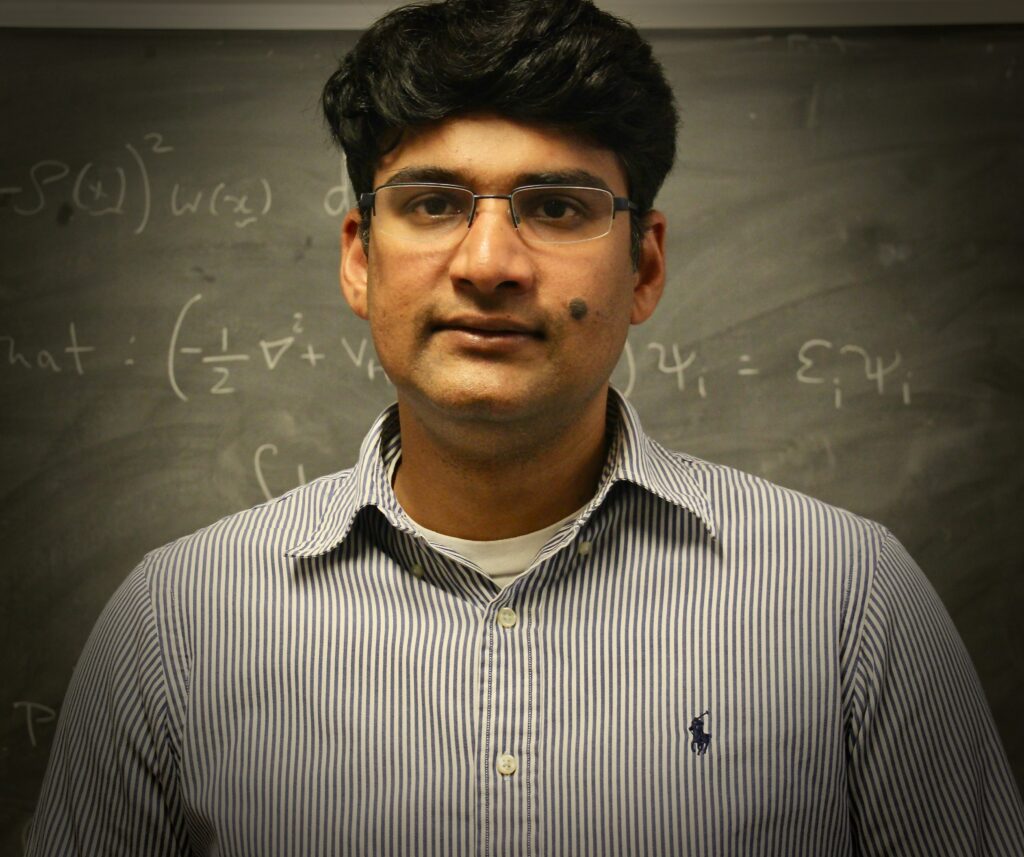
Lecture Title: Fast, Accurate and Large-scale Ab-initio Calculations for Materials Modeling
Lecture Abstract: Electronic structure calculations, especially those using density functional theory (DFT), have been very useful in understanding and predicting a wide range of materials properties. The importance of DFT calculations to engineering and physical sciences is evident from the fact that ~20% of computational resources on some of the world’s largest public supercomputers are devoted to DFT calculations. Despite the wide adoption of DFT, the state-of-the-art implementations of DFT suffer from cell-size and geometry limitations, with the widely used codes in solid state physics being limited to periodic geometries and typical simulation domains containing a few hundred atoms. This talk will present our recent advances towards the development of computational methods and numerical algorithms for conducting fast and accurate large-scale DFT calculations using adaptive finite-element discretization, which form the basis for the recently released DFT-FE open-source code (https://github.com/dftfeDevelopers/dftfe). The computational efficiency, scalability and performance of DFT-FE will be presented, which demonstrates a significant outperformance of widely used plane-wave DFT codes. Recent studies using DFT-FE on the energetics of <c+a> dislocations in Mg, their interaction with solute atoms, and implications to c-axis ductility will be discussed.
Speaker Bio: Vikram Gavini is a Professor of Mechanical Engineering and Materials Science & Engineering at the University of Michigan. He received his PhD from California Institute of Technology in 2007. His interests are in developing methods for first-principles based materials calculations, defect mechanics, numerical analysis of PDEs and scientific computing. He is the recipient of the NSF CAREER Award in 2011, AFOSR Young Investigator Award in 2013, Alexander von Humboldt Foundation’s Humboldt Research Fellowship for Experienced Researchers (2012-14), and the USACM Gallagher Award in 2015. His team was nominated as a finalist for the 2019 ACM Gordon Bell prize (supercomputing).
Session II: James Chapman, Boston University
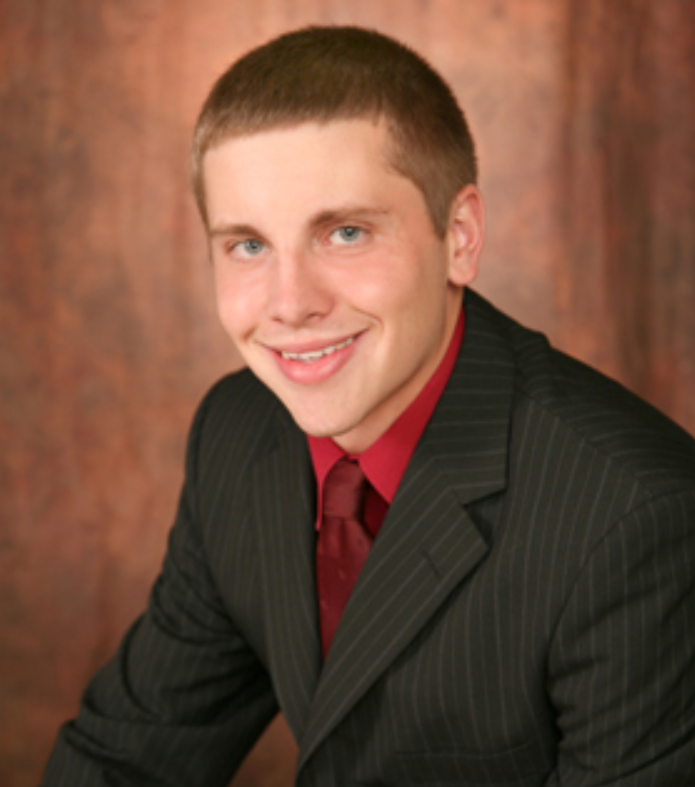
Lecture Title: From Atoms to Microns: Understanding How Materials Behave, One Atom at a Time
Lecture Abstract: As the demand for novel technologies drives the deployment of materials into uncharted domains, the need to understand their behavior under complex conditions becomes ever more vital. The last two decades have seen a rise in computing capabilities, though bridging the gap between experimental observations and simulations is still a non-trivial process. In this talk I will address three avenues to solve this challenge: (1) characterization of atomic structures, (2) accelerating atomic-level property predictions, and (3) the expansion of our capability to simulate length and time scales that can link simulations to experimental observations.
Speaker Bio: Dr. Chapman is an Assistant Professor of Mechanical Engineering at BU. He obtained his PhD in Materials Science and Engineering from Georgia Tech in 2020, and completed his postdoctoral work at Lawrence Livermore National Lab in 2022. His research expertise is on the fusion of data science/machine learning with atomistic/mesoscale simulations to better understand how materials properties change under extreme conditions. His current work focuses on employing graph-based approaches to alleviate the “small data” burden for inverse design problems.
Session II: Tess Smidt, Massachusetts Institute of Technology
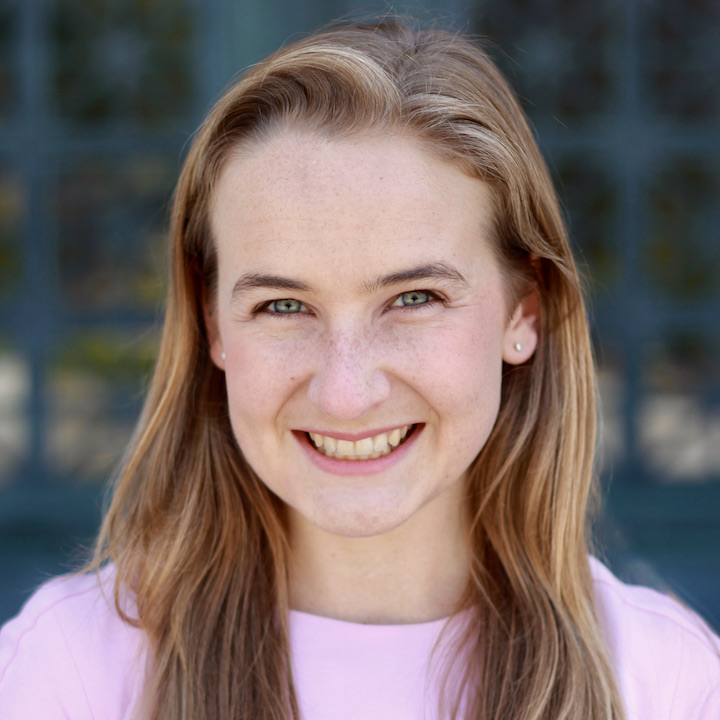
Lecture Title: Neural Networks with Euclidean Symmetry for Atomic Systems
Lecture Abstract: Atomic systems (molecules, crystals, proteins, etc.) are naturally represented by a set of coordinates in 3D space labeled by atom type. This is a challenging representation to use for machine learning because the coordinates are sensitive to 3D rotations, translations, and inversions (the symmetries of 3D Euclidean space). In this talk, we present Euclidean neural networks which faithfully treats the symmetry of physical systems and naturally handle 3D geometry and geometric tensor fields that characterize them. Due to symmetry being built into these methods, they are extremely data-efficient; they achieve state of the art results on a variety of atomistic modeling tasks (ab initio molecular dynamics, prediction of crystal properties, and scaling of electron density predictions) and need less data to do so.
Speaker Bio: Tess Smidt is an Assistant Professor of Electrical Engineering and Computer Science at MIT. Tess earned her SB in Physics from MIT in 2012 and her PhD in Physics from the University of California, Berkeley in 2018. Her research focuses on machine learning that incorporates physical and geometric constraints, with applications to materials design. Prior to joining the MIT EECS faculty, she was the 2018 Alvarez Postdoctoral Fellow in Computing Sciences at Lawrence Berkeley National Laboratory and a Software Engineering Intern on the Google Accelerated Sciences team where she developed Euclidean symmetry equivariant neural networks which naturally handle 3D geometry and geometric tensor data.
Poster Session: 12:40-1:50pm
The Poster Session list will be posted here prior to the event.
Session III: Giulia Galli, University of Chicago
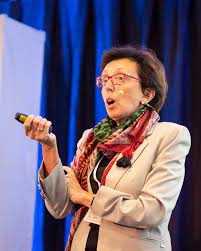
Lecture Title: Electronic Structure and Coherence Properties of Spin Defects in Semiconductors From First Principles
Lecture Abstract: We discuss recent progress in investigating the electronic structure and coherence properties of spin defects in three- and two-dimensional materials using first principles electronic structure calculations (DFT and many body perturbation theory), and spin Hamiltonians . In particular we will present results for defects in diamond and SiC using newly developed quantum embedding theories.
Speaker Bio: Giulia Galli is the Liew Family Professor of Electronic Structure and Simulations in the Pritzker School of Molecular Engineering and in the Department of Chemistry at the University of Chicago. She also holds a Senior Scientist position at Argonne National Laboratory, where she is the director of the Midwest Integrated Center for Computational Materials.
Session III: Ismaila Dabo, The Pennsylvania State University, Materials Science and Engineering
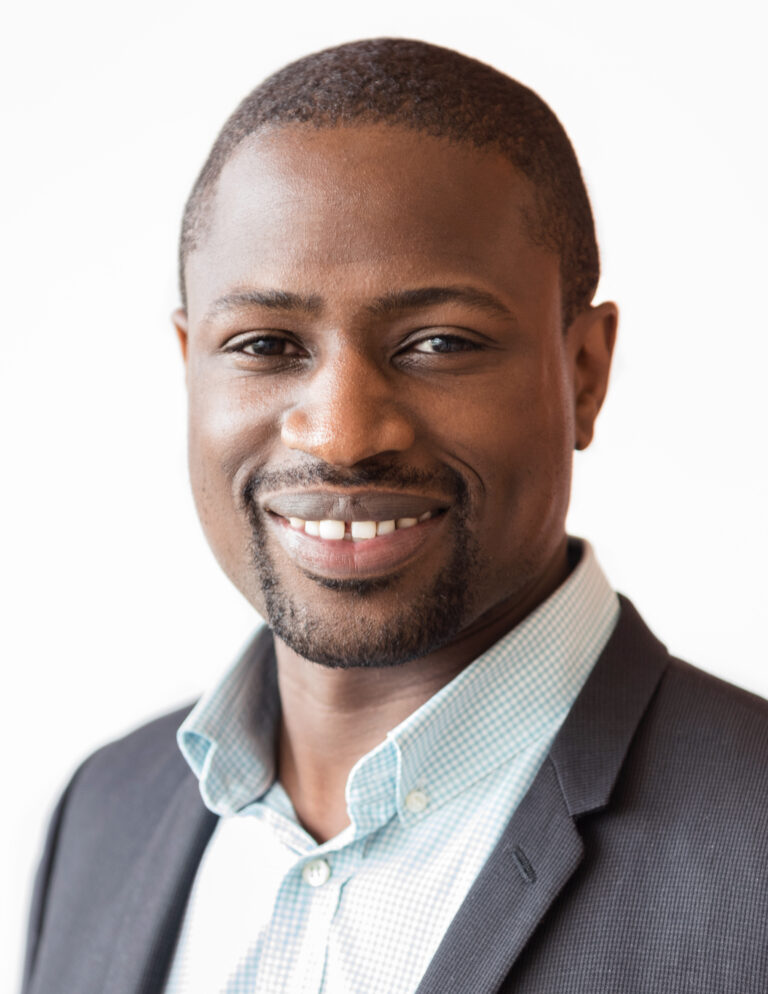
Lecture Title: Data-Intensive Discovery of Photocatalytic Semiconductors for Solar-to-Hydrogen Conversion
- Lecture Abstract: Materials innovations require considerable time and resources. This presentation will discuss the use of first-principles calculations for narrowing down the choice of candidate materials for target applications. The focus will be on producing renewable hydrogen fuels by cleaving water molecules under solar illumination [1,2]. Progress in predicting the optical properties of compound semiconductors will also be highlighted [3]. [1] Xiong et al., Optimizing accuracy and efficacy in data-driven materials discovery for the solar production of hydrogen, Energy & Environmental Science 14, 2335-2348 (2021)[2] Katz et al., Understanding the photoelectrochemical properties of theoretically predicted water-splitting catalysts for effective materials discovery, Advanced Energy Materials, in press (2022)[3] Kirchner-Hall et al., Extensive benchmarking of DFT+ calculations for predicting band gaps, Applied Sciences 11, 2395 (2021)
Speaker Bio: Ismaila Dabo is an Associate Professor in the Department of Materials Science and Engineering at Penn State University with joint appointments in the Penn State Institutes of Energy and the Environment, and in the Penn State Materials Research Institute. He received a Ph.D. in Materials Science and Engineering from MIT. His recent awards include the Wilson Teaching Excellence Award (2021), Materials Science and Engineering Faculty of the Year Award (2021), Corning Chair in Materials Science and Engineering (2020). He currently serves on the editorial board of the journals Computational Materials Science (Elsevier) and Science (AAAS).
Session III: Tod Pascal, University of California, San Diego
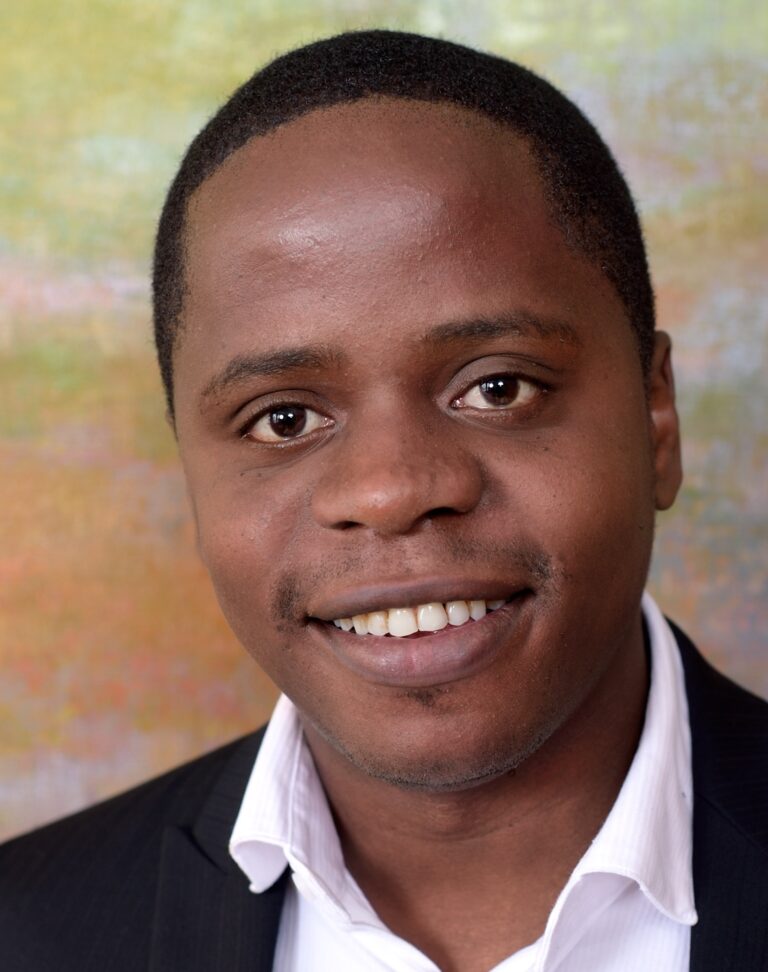
Lecture Title: Simulated, Non-Linear X-ray Spectroscopy as a Probe of Buried Functional Materials Interfaces
Lecture Abstract: Understanding the fundamental atomic-level dynamics of lithium-ions at interfaces is of critical importance for rational design of more efficient energy storage technologies. In these and related material systems, detailed understanding of the involved ion dynamics and chemistry is currently missing, due to lack of direct in operando access with chemical specificity. In this work, we present simulated, non-linear X-ray spectroscopy as an emerging tool for investigating the atomic and electronic structure and dynamics at buried, functional material interfaces. Specific examples, related to batteries and capacitors are presented.
Speaker Bio: Tod A Pascal is an Assistant Professor of Nano and Chemical Engineering, Material Science and Engineering at the University of California San Diego, La Jolla, CA, USA. He is also a faculty member of the Sustainable Power and Energy Center, The UCSD Materials Research and Engineering Center and the Halıcıoğlu Data Science Institute. His research group is interested in the structure and dynamics of electro-chemical systems, disorder in condensed phase systems and spectroscopy at molecular interfaces.
Session III: Enrico Bellotti, Boston University
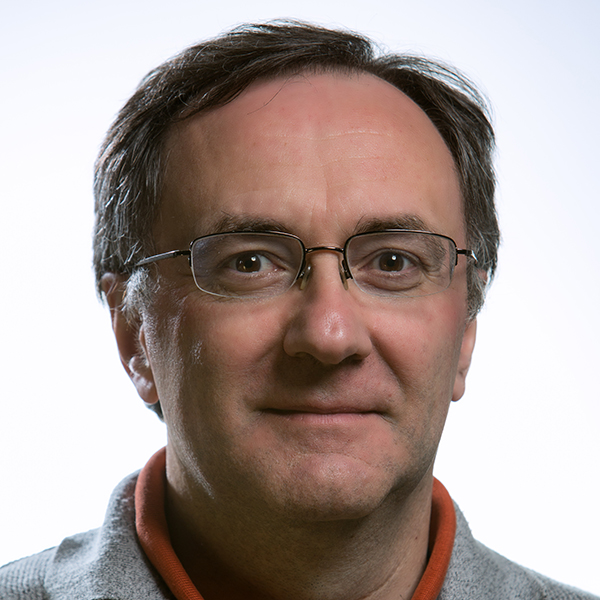
Lecture Title: Center for Semiconductor Modeling (CSM) – Accelerating Technology Development through Understanding Fundamental and Technology Limitations in Materials and Devices
Lecture Abstract: The Center for Semiconductor Modeling of Materials and Devices (CSM), brings together government, academia, and industry in a collaborative fashion to continuously advance semiconductor research. The CSM leverages combined core competencies of partner organizations, which include a broad knowledge base in modeling, and its validation; sharing of computational, characterization, materials growth and device processing resources. To fully exploit novel materials and their related device structures, and minimize the risk associated with transitioning this technology into production, it is necessary to develop methodologies that can reliably predict their properties. This talk will discuss three research activities performed within the CSM intended to address these issues at different scales.
Speaker Bio: Enrico Bellotti received the “Laurea in Ingegneria Elettronica” degree from Politecnico di Milano, Milano, Italy, in 1989, and the Ph.D. degree in electrical engineering from the Georgia Institute of Technology, Atlanta, USA, in 1999. He joined the Department of Electrical and Computer Engineering, Boston University in 2000 as an Assistant Professor and was promoted to Full Professor in 2013. He has authored or co-authored over 130 journal papers, 100 conference papers, and 4 book chapters. He is the holder of three U.S. patents. He was a recipient of the 2003 ONR Young Investigator Program Award and the 2005 NSF CAREER Award. He is currently the director of the U.S. Army Research Laboratory funded Consortium for Semiconductor Modeling. Dr. Bellotti is member of IEEE and SPIE Life Member.
Sponsor